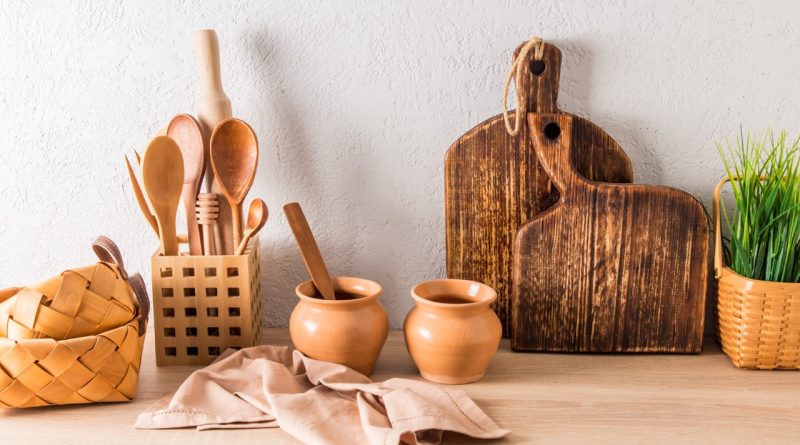How Zwilling Integrates Robotics In Knife Production
In the culinary world, the quality of tools plays a pivotal role in the art of cooking. Zwilling, a renowned name in knife manufacturing, has embraced technological advancements to enhance their production processes. By integrating robotics into their knife production, Zwilling has not only improved precision and efficiency but has also set a benchmark for innovation in the industry. This article explores how Zwilling leverages robotics to redefine knife manufacturing, ensuring that chefs and home cooks alike have access to top-tier tools.
The Role of Robotics in Modern Knife Manufacturing
Robotics has become a cornerstone of modern manufacturing, and Zwilling is at the forefront of this trend in the knife industry. The integration of robotic systems allows for a level of consistency and accuracy that manual labor simply cannot match. Robots are programmed to handle repetitive tasks, such as grinding and polishing, reducing the variability that can occur with human workers. This precision ensures that each knife meets stringent quality standards, essential for maintaining Zwilling’s reputation for excellence.
Furthermore, robotic arms are designed to work in tandem with human workers, enhancing overall productivity rather than replacing the skilled artisans who bring decades of experience to the table. For example, while robots can perform the heavier lifting and repetitive tasks, skilled craftsmen can focus on the more intricate aspects of knife design and finishing. This collaborative approach not only preserves traditional craftsmanship but also allows for the efficient production of high-quality knives that meet the demands of modern culinary professionals.
Additionally, the introduction of robotics in Zwilling’s production lines helps to mitigate the risks associated with manual labor, such as fatigue and injury. By automating strenuous tasks, Zwilling fosters a safer working environment, which ultimately contributes to a more sustainable manufacturing process. The combination of human skill and robotic efficiency creates a harmonious balance that propels Zwilling to a competitive edge in the knife market.
Enhancing Precision: Robotics in Blade Creation
One of the most critical aspects of knife production is the creation of the blade itself, where precision is paramount. Zwilling employs advanced robotic systems equipped with cutting-edge technologies, such as laser-guided cutting and computerized grinding. These technologies allow for the creation of blades that are not only sharp but also uniform in thickness and angle, which is essential for optimal cutting performance.
The use of robotics in blade creation also allows for rapid prototyping and customization. With the ability to program robots for specific designs, Zwilling can quickly adjust production lines to create specialized knives tailored to the needs of chefs or culinary enthusiasts. This flexibility is particularly important in a market that values both innovation and personalization, enabling Zwilling to respond swiftly to changing consumer demands.
Moreover, the precision offered by robotic systems translates to improved durability and performance of the knives. A well-crafted blade not only cuts efficiently but also maintains its edge longer, resulting in less frequent sharpening and prolonging the knife’s lifespan. This focus on precision not only enhances the user experience but also reinforces Zwilling’s commitment to quality craftsmanship.
Streamlining Production: Efficiency Through Automation
Efficiency is a critical factor in any manufacturing process, and Zwilling’s integration of robotics is a game-changer in this regard. Automation allows for the streamlining of various production stages, from raw material handling to final inspections. By utilizing robotics, Zwilling can reduce production time, minimize waste, and optimize resource allocation, thus enhancing overall productivity.
For instance, robotic systems are capable of handling multiple tasks simultaneously, such as sorting materials and performing quality checks. This multitasking capability significantly reduces bottlenecks in the production line, allowing for a smoother workflow. Consequently, Zwilling can meet higher production targets without compromising on quality, ensuring that the demand for their knives is consistently met.
Additionally, data analytics play a crucial role in Zwilling’s automated processes. Robotics systems can collect and analyze data in real-time, enabling continuous monitoring of production quality and efficiency. This analytical approach allows for quick adjustments and improvements, ensuring that every knife produced meets Zwilling’s high standards while also reducing costs associated with defects and rework.
The Future of Knife Production: Innovations Ahead
Looking ahead, the future of knife production at Zwilling is poised to be shaped by ongoing advancements in robotics and automation technology. As artificial intelligence (AI) continues to evolve, Zwilling is likely to incorporate smart systems capable of learning and adapting to production needs. This could lead to even greater efficiencies and the ability to predict and respond to market trends in real-time.
Moreover, the integration of Internet of Things (IoT) technology could provide Zwilling with enhanced connectivity between machines and production lines. Such connectivity would enable real-time monitoring and data sharing, allowing for more informed decision-making and quicker responses to quality issues. This level of innovation could further elevate the standards of knife production, ensuring that Zwilling remains a leader in the industry.
Lastly, sustainability will play a significant role in the future of knife production. As consumers become increasingly aware of environmental concerns, Zwilling is likely to focus on eco-friendly practices within their robotic processes. This may include the use of renewable materials and energy-efficient manufacturing methods, ensuring that the production of high-quality knives is not only efficient but also environmentally responsible.
In conclusion, Zwilling’s integration of robotics in knife production is a testament to the brand’s commitment to quality, precision, and innovation. By harnessing the power of automation, Zwilling enhances blade creation, streamlines production processes, and prepares for a future filled with technological advancements. For culinary enthusiasts and professionals alike, this dedication to excellence ensures that every Zwilling knife is a reliable tool that enhances their culinary experiences. As the industry evolves, Zwilling continues to set the standard, blending traditional craftsmanship with modern technology to meet the needs of today’s cooks.
